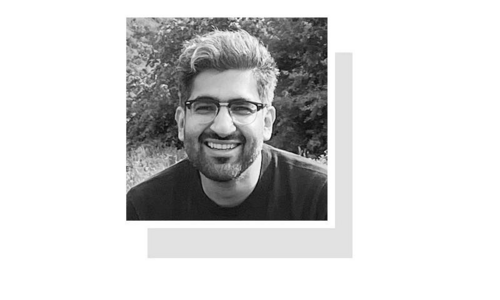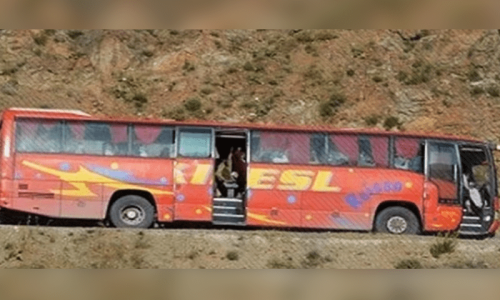OLDER readers will recall that once upon a time, butchers couldn’t sell meat on Wednesdays and Thursdays, and restaurants were allowed to serve only chicken and fish.
I’m sure the law is still on the books, but like so many others, is completely ignored. Ayub Khan had imposed these restrictions because of a meat shortage, and for years, our cook would stock up on Tuesday, or face my meat-loving father’s wrath.
And in the mid-1950s, we had to have lights on our bicycles after dusk, or the cops would stop us and make us walk. There was no question of threatening them with dire retribution via our fathers or other well-connected adults as we would have been punished at home for breaking the law.
Feudal values have become the face of our ruling elite.
I rake up the distant past only to remind ourselves that there was a period in our history when the rule of law was observed, and the lowliest servant of the state had a measure of authority. No longer. Who remembers now that the sale of meat is banned on Wednesdays and Thursdays? Bike shops no longer stock lights as nobody uses them.
So when did we stop being a law-abiding society, and why did the state become impotent in imposing its rules and regulations? While I have no hard evidence to back me up, I suspect that the bureaucrats, police officers and soldiers who provided Pakistan with its early skeletal framework were, for the most part, honest, diligent and apolitical.
In Pakistan’s early years, feudals did not have the kind of muscle they acquired later. But following successive elections at local, provincial and federal levels, they found it easy to manipulate the system to become a potent force on the national scene. Several political parties were captured by them, giving them an influence over national affairs they had lacked under a more bureaucratic dispensation.
Apart from the poisonously conservative direction they took the country in, they brought their contempt for the rules to national politics. Used to getting their way in their own backward fiefdoms, they imposed this template on the whole country.
Gradually, they became role models for other politicians, bureaucrats and even businessmen. Laws were for commoners, and this emerging aristocracy were above such mundane rules. Traffic cops stopped them at their own peril, with many being actually slapped for having the temerity to book offenders from this class of swaggering louts.
With this example set by these newly minted ruling elites, small wonder that these scofflaw attitudes filtered down to every level. Watching their rulers brazenly drive through red lights, why would other drivers stop? Our gilded youth can even kill with impunity under the protection of their powerful parents.
Even if they are convicted, as Shahrukh Jatoi was for murdering Shahzeb Khan in 2012, they can get perks like TV and air-conditioning in their personal cells, as the killer has done in this case. Given the political and bureaucratic interference the police are subjected to, the collapse in their morale should not surprise us.
Things don’t change when the army takes over. Feudal values are now so deeply embedded in Pakistan that they have become the face of our ruling elites, no matter who’s in charge. So while we have all the trappings of democracy — elections, parliament, opposition, free speech, etc — what is lacking is the rule of law.
As Ayaz Amir pointed out recently in The News, it is possible to have the rule of law without democracy; but democracy without the rule of law is meaningless. Our superior judiciary, too busy with high-profile political cases to clean up the mess and backlog in our lower courts, is little help in restoring public confidence. If anything, the time and expense involved in litigation has eroded trust in the whole system.
I have often thought about why some countries have shot ahead while others have dropped further behind. Money is one reason, but only a small part of the real explanation. In England, a cop could issue a speeding ticket to the highest in the land without fearing for his job. This is the litmus test for the rule of law in practice.
Secularism is another reason some countries have done better than others. Societies that do not flaunt their faith at every opportunity tend to be less corrupt, happier, safer and more prosperous than those dominated by piety and hypocrisy.
Where access to power is determined by who your parents are, and what faith you believe in, merit can have no role. And societies that do not use their best talent are bound to fall behind in the global sweepstakes.
Until the 1960s, Pakistan was regarded as a high-performing developing country with great potential. Now, it is seen as a failing state. What we have lost is our respect for the rule of law, and with it, our chance of a better future.
Published in Dawn, July 2nd, 2016










































